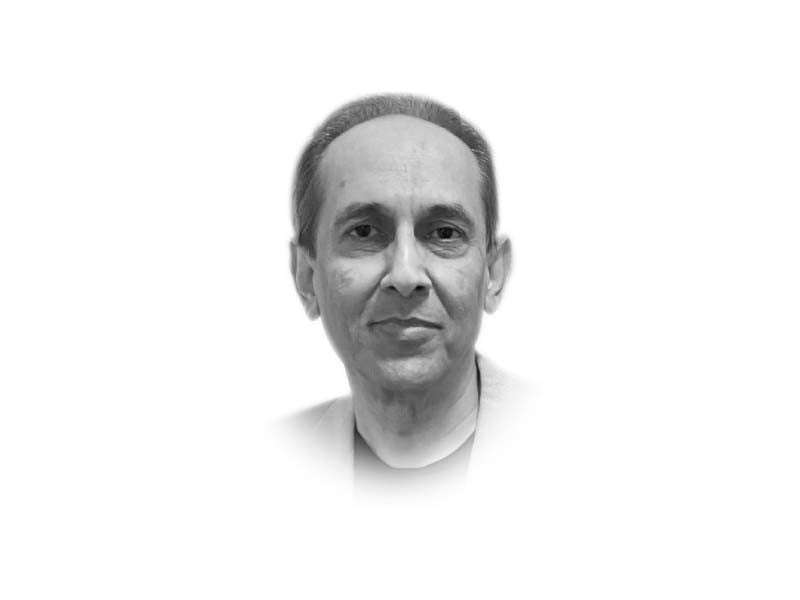
Did Nero, the Roman Emperor, play the fiddle when Rome burned in 64 CE? We may not know the answer for sure but we do know that 70% of Rome was in ruins when the fire ended. We also know that Nero used the disaster to further his political agenda. Today, Pakistan is burning. And we have a Nero among us. In fact, we have many. Do we have them in our government? In the opposition? In the military? In the judiciary? In our political parties? Among the feudal class? Among the industrialists and the land mafia? The high-net-worth individuals?
Recently, a stampede killed 11 women and children at a Ramadan food distribution centre in Karachi. In separate incidents, four elderly citizens died and many fainted as they hoped to collect free wheat flour in Multan, Muzaffargarh and Faisalabad. A 73-year-old man was fatally injured by an unruly mob at a flour distribution centre in Rahim Yar Khan. The list is long and the stories are painful. Pakistan continues to burn but the Neros don’t care. The elites in Pakistan enjoy ravishing perks and privileges that added up to $17.4 billion in 2021, according to a United Nations report. In the face of this dichotomy between the rich and the poor, the haves and the have-nots, the pro and anti-Imran Khan forces are at loggerheads with each other over finalising an elections’ date as if elections were a charming prince that will rescue the damsel in distress.
But true democracy (rule of the people) is more than elections. It is not about popularity. After all, Adolph Hitler was a popular leader of his time. Just like a heart has four chambers, democracy has four components each as important as the other:
1. Civil liberties. This includes the right to equal protection under the law, equal opportunity and meritocracy, freedom of speech and expression, freedom of religion, freedom of press, and the right to life, liberty, dignity, and equality, and freedom to participate in civic and democratic institutions without duress or discrimination. John Stuart Mill in his essay, On Liberty, emphatically asserts, “If all mankind minus one, were of one opinion, and only one person was of a contrary opinion, mankind would be no more justified in silencing that one person than he, if he had the power, would be justified in silencing mankind.”
2. Division of Power. This includes supremacy of the constitution that protects the civil liberties of its citizens, all its citizens without discrimination, and treats them equally, and promotes division of power in government — the judicial, the legislative, the executive — to prevent abuse and misgovernance. Most importantly, a system of checks and balances is essential not only among the three branches of the government but within each branch of the government as well. Montesquieu, a French political philosopher, could foresee the potential for abuse of justice when he declared, “There is no greater tyranny than that which is perpetrated under the shield of the law and in the name of justice.”
3. Elected Representation. This includes representation of people at all levels of government: local, provincial, and federal. Fair and timely elections. This also includes intra-party elections to prevent one man or one family from dominating politics. Thomas Jefferson, the third President of the United States, warned, “The will of the people is the only legitimate foundation of any government, and to protect its free expression should be our first objective.”
4. Accountability. This includes routine internal and external independent auditing of institutions that run the government including but not limited to the judiciary, the military, the parliament, the senate, the executive, the ministries, and all bureaucratic agencies. To combat corruption, all government offices must be transparent and their activities should be open for public scrutiny. Thomas Paine, a political activist and theorist, once wrote: “A body of men holding themselves accountable to nobody ought not to be trusted by anybody.”
So, we can conclude, without reservations, that just like a heart depends on its four chambers to function properly, democracy requires its four components mentioned above to keep a nation alive and robust. Tragically, one can easily argue that we never had democracy in Pakistan. Elections may take place today or tomorrow or the day after, but Pakistan needs fundamental reforms to secure the most basic human rights and a minimum standard of living for every citizen of the state. The time is now. Pakistan is burning and we must rescue it from the hypocrisy of its egocentric Neros and from the hegemony of its inordinately rich elite.
Published in The Express Tribune, April 11th, 2023.
Like Opinion & Editorial on Facebook, follow @ETOpEd on Twitter to receive all updates on all our daily pieces.

1731916090-0/sabrina-(3)1731916090-0-405x300.webp)


1732020599-0/BeFunky-collage-(73)1732020599-0-165x106.webp)
1731926127-0/zayn-(1)1731926127-0-165x106.webp)


1729685382-0/Untitled-design-(57)1729685382-0-270x192.webp)




COMMENTS (2)
Comments are moderated and generally will be posted if they are on-topic and not abusive.
For more information, please see our Comments FAQ